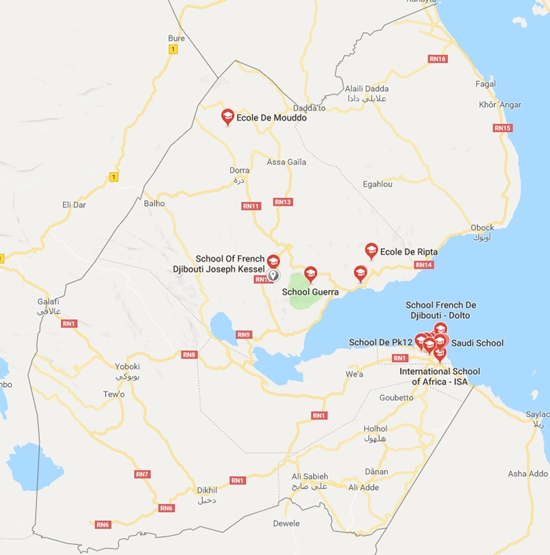Nestled at the crossroads of Africa, the Middle East, and the Red Sea, Djibouti is a fascinating blend of cultures and histories. Pronounced “ji-boo-tee,” this unique country offers TESOL teachers an opportunity to explore its rich heritage while making a meaningful impact through education. Djibouti’s cultural tapestry is woven with African, Arabic, and French influences, a legacy shaped in part by the French establishment of Somaliland in 1888. Today, this small yet strategic nation is a gateway to understanding the broader dynamics of the Horn of Africa.
Why Teach English in Djibouti?
Teaching English in Djibouti provides educators with the chance to contribute to the country’s educational growth while immersing themselves in a vibrant cultural landscape. English is increasingly valued as a tool for international communication and economic development, making TESOL-certified teachers highly sought after. Beyond the classroom, Djibouti offers unparalleled opportunities for cultural exchange, professional growth, and personal adventure.
17 Interesting Facts About Djibouti
- Geographical Marvel: Djibouti is located at the junction of the Red Sea and the Gulf of Aden, making it a critical trade and shipping hub.
- Lakes of Extremes: Lake Assal is the world’s third-lowest point below sea level and one of the saltiest bodies of water on Earth.
- Diverse Influences: The country’s official languages are French and Arabic, but Somali and Afar are widely spoken.
- Volcanic Origins: Djibouti’s landscape is shaped by its location on the East African Rift, with active geothermal activity and volcanic formations.
- Marine Wonderland: The waters surrounding Djibouti are a diver’s paradise, home to whale sharks and vibrant coral reefs.
- Cultural Fusion: Djiboutian cuisine blends African, Middle Eastern, and French flavors, with dishes like Skoudehkaris (spiced rice with meat) taking center stage.
- Nomadic Roots: Many Djiboutians maintain a strong connection to their nomadic heritage, reflected in traditional music, dance, and storytelling.
- Strategic Importance: Djibouti hosts several international military bases due to its strategic location.
- Historic Trade Routes: The area has been a critical link in trade routes connecting Africa, the Middle East, and Asia for centuries.
- Natural Beauty: From the rugged Goda Mountains to the stark beauty of the Grand Bara Desert, Djibouti’s landscapes are breathtaking.
- Rare Wildlife: The country is home to unique species like the Djibouti francolin and the Beira antelope.
- Friendly People: Djiboutians are known for their warmth and hospitality, making it easy for visitors to feel at home.
- Growing Economy: Djibouti’s economy is expanding, driven by trade, logistics, and infrastructure development.
- Small but Mighty: Despite its size, Djibouti plays a significant role in global geopolitics.
- Cultural Celebrations: Festivals like Independence Day on June 27th highlight the country’s vibrant traditions.
- Education Focus: Djibouti is prioritizing education, particularly in teaching English as a key skill for the future.
- Gateway to Africa: As a major entry point to the African continent, Djibouti is a hub for travelers and explorers.
How to Start Teaching in Djibouti
Begin your journey by earning your TESOL certification, which prepares you for teaching English in diverse cultural and linguistic settings. Research job opportunities in Djibouti, and connect with local communities to make the most of your teaching experience. By teaching English in Djibouti, you’ll not only gain professional growth but also immerse yourself in a country that offers a blend of adventure, history, and cultural richness.
Embrace the Opportunity
Go ahead and explore the unique opportunities that Djibouti has to offer. From its stunning landscapes and cultural diversity to its strategic importance on the global stage, teaching in Djibouti is more than just a job—it’s a journey into the heart of one of Africa’s most fascinating regions.



